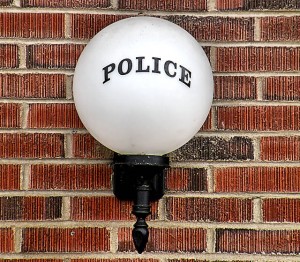By John Layton and Roger Starkey
When Governor Pat Quinn signed into law Senate Bill 3411 on Sunday, June 15, he touted it as part of his agenda to maintain integrity in local government. State Representative Jay Hoffman, of Swansea, said the new law eliminates arbitrary quotas.
“Arbitrary quotas on the number of tickets that have to be issued by police officers undermines the public trust in the police departments’ priorities,” Hoffman said in a press release issued by the governor’s office. “By eliminating these quotas, we can restore that trust and ensure that police officers are free to do their job protecting the public.”
The law, which goes into effect on Jan. 1, 2015, does eliminate quotas during the daily operations of most police agencies in the state. It does not eliminate all quotas, however.
Amendment two, introduced by Senator Andy Manar, of Bunker Hill, seems to allow quotas if they are tied to certain funding and used in traffic enforcement programs.
“This prohibition shall not affect the conditions of any federal or State grants or funds awarded… and used to fund traffic enforcement programs,” the law reads.
If ticket quotas are put in place, it appears they cannot be used to evaluate officers. The impacted law enforcement agencies cannot “compare the number of citations issued by the law enforcement officer to the number of citations issued by any other law enforcement officer who has similar job duties.”
Under the new law, state, local, county and conservation police (university and college police are not included in the law) are allowed to set a minimum number of contacts an officer must make during a certain period of time.
A point of contact is defined as “any quantifiable contact made in the furtherance of the [police officer’s] duties, including, but not limited to, the number of traffic stops completed, arrests, written warnings, and crime prevention measures.”
The law also states “points of contact shall not include either the issuance of citations or the number of citations issued by a [police officer].”
Collinsville Police Chief Steve Evens said law enforcement agencies, must be able to set quotas for the number of contacts an officer makes because the agencies need to demand a certain level of work from the officers. Evans said there is a benefit to the community of expecting officers to stay busy and do work.
“They do that,” Evans said. “[However] there’s no benefit to having a quota system as people understand it.”
The Collinsville Police Department has no set number of contacts, Evans said, nor is there a ticket quota system in place. Evans, who served 26 years on the Fairview Heights Police Department before becoming the chief in Collinsville on Nov. 27, 2013, said Fairview Heights never had a quota system, either.
Maryville Police Chief Robert Carpenter said his department has performance standards regarding how much self-initiated activity an officer has, but there are no ticket quotas.
“Our officers always have discretion on whether they issue a citation when they make a traffic stop,” Carpenter said. “Operationally, it won’t change a thing here.”
Caseyville Interim Police Chief Scott Miller said his department has not had a ticket quota or a quota for the number of contacts an officer makes for at least the last 20 years, the length of time he has been on the force.
The bill passed the Senate 57-1 and the House 106-9. The lone senate vote in opposition was cast by Tim Bivins, of Dixon, a former sheriff.




